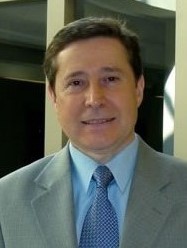 |
BioInfoMed’2020 Invited Speakers
Prof. Plamen Ch. Ivanov (United States)
|
Abstract
The human organism is an integrated network where complex physiological systems continuously interact to optimize and coordinate their function. Organ-to-organ interactions occur at multiple levels and spatiotemporal scales to produce distinct physiologic states. Disrupting organ communications can lead to dysfunction of individual systems or to collapse of the entire organism. Yet, we do not know the nature of interactions among systems and sub-systems, and their collective role as a network in maintaining health. We initiated a new interdisciplinary field, Network Physiology, which aims to address these fundamental questions. Through the prism of concepts and approaches from statistical and computational physics and nonlinear dynamics, we will present a new framework to identify and quantify dynamic networks of organ interactions. We focus on inferring coupling and dynamical interactions among organ systems from continuous streams of synchronized recordings of key physiologic parameters. In contrast to traditional complex networks theory, where edges/links are constant and represent static graphs of association, novel approaches in Network Physiology aim to establish dynamical aspects of organ communications in real time, to track the evolution of organ network interactions and quantify emerging collective network behaviors in response to changes in physiological state and condition. We will report first findings utilizing this new framework to (i) investigate brain-brain network interactions across distinct brain rhythms and locations, and their relation to new aspects of neural plasticity in response to changes in physiologic state; (ii) characterize dynamical features of brain-organ communications as a new signature of neuroautonomic control; and (iii) establish basic principles underlying coordinated organ-organ communications. We will demonstrate how physiologic network topology and systems connectivity lead to integrated global behaviors representative of distinct states and functions. The presented investigations are initial steps in building a first Atlas of dynamic interactions among organ systems and the Human Physiolome, a new kind of BigData of blue-print reference maps that uniquely represent physiologic states and functions under health and disease.
Curriculum Vitae
Professor Ivanov, PhD, DSc, is Director of the Keck Laboratory for Network Physiology at Boston University (https://sites.google.com/site/labnetworkphysiology/home), Associate Physiologist at the Division of Sleep Medicine, Brigham and Women’s Hospital, and Lecturer in Medicine at Harvard Medical School. He has introduced innovative ways to analyze and model physiologic systems, adapting and developing concepts and methods from modern statistical physics, nonlinear dynamics and networks theory. He has investigated the complex dynamics and underlying control mechanisms of a range of physiological systems, including studies on cardiac and respiratory dynamics, sleep-stage transitions, circadian rhythms, locomotion and brain dynamics, and has uncovered basic laws of physiologic regulation. His work is published in more than 150 publications and book chapters (H-index=60; 26,700 citations), and has been broadly featured in the media, including Scientific American, Science News, Physics World, Nature Research Highlights, Washington Post, Futurity Magazine, the Boston Globe. Professor Ivanov has pioneered the study of dynamical network interactions of physiological and organ systems, and is the originator and founder of the field of Network Physiology. His current work focuses on developing theoretical framework to investigate network interactions among diverse organ systems, and how physiological systems integrate to generate distinct states and functions at the organism level to produce health or disease. His work lays the foundation of the Human Phyiolome, a new type of BigData, containing streams of continuously recording, high frequency, synchronized physiological signals under various physiological states and clinical conditions, with an associated Atlas of network maps representing network interactions among physiological systems at different levels in the human organism. Professor Ivanov is one of the nine founding members of PhysioNet (https://physionet.org/) — first NIH sponsored data sharing research resource. His research has been funded by the W.M. Keck Foundation, NIH, Office of Naval Research (ONR) and the US-Israel Binational Science Foundation (BSF). He has served as editorial and advisory board member for several leading journals, including EPL (Europhysics Letters), EPJ Nonlinear Biomedical Physics, Journal of Biological Physics (JOBP), Physiological Measurement, New Journal of Physics. He is Editor-in-Chief of the journal Frontiers in Fractal and Network Physiology, and is the founding director of the International Summer Institute on Network Physiology (ISINP, https://isinp-3.lakecomoschool.org), Lake Como School of Advanced Study. Professor Ivanov is Elected Fellow of the American Physical Society (2010). He is recipient of the Sustained Research Excellence Award (2009-2011) of the Biomedical Research Institute, Brigham and Women’s Hospital, Harvard Medical School; of the Georgi Nadjakov Medal, Bulgarian Academy of Sciences (2012), and of the Pythagoras Award for high achievements in interdisciplinary research bestowed by the President of Bulgaria (2014).
